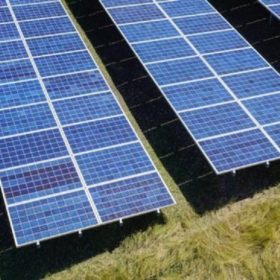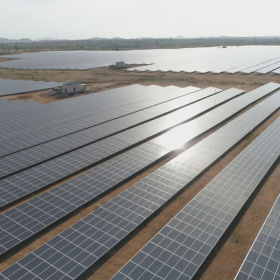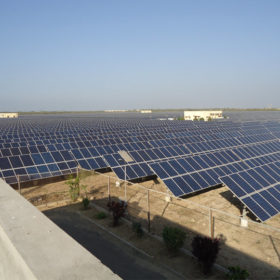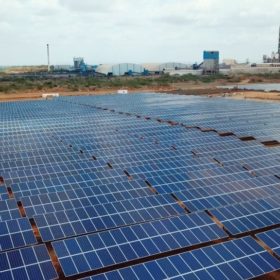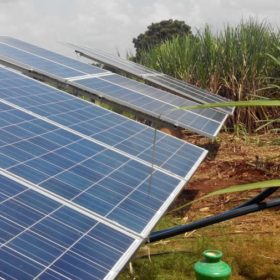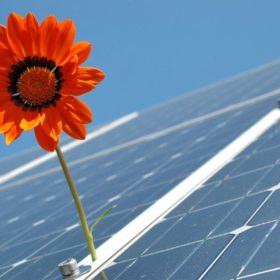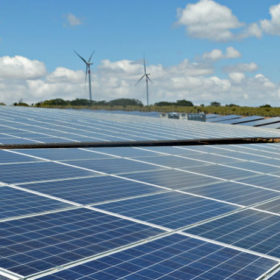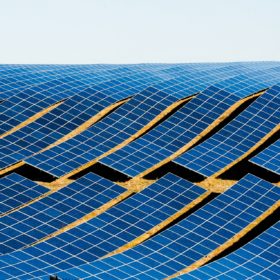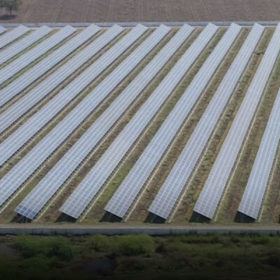Uttar Pradesh set for 2 GW ‘ultra-mega’ renewable energy park
The state cabinet has approved a 74:26 joint venture proposal by publicly-owned hydropower company THDC India and the Uttar Pradesh New and Renewable Energy Development Agency for the ambitious project.
Two-week bidding extension for SCCL’s 81 MW solar
Developers now have 14 more days to submit bids for 34 MW (AC) ground based, 32 MW (AC) over-burden dump based and 15 MW (AC) floating solar plants at Singareni Collieries Company Limited (SCCL) sites in Telangana state.
Tata Power to develop 120 MW solar project in Gujarat
The integrated power producer’s renewable capacity will now swell to 3,457 MW. Of this, 2,637 MW (932 MW wind and 1705 MW solar) is operational and 820 MW solar (including the latest 120 MW won from Gujarat Urja Vikas Nigam Limited) under implementation.
SECI tenders 10 MW grid-connected solar in Rajasthan
Tariff ceiling is fixed at Rs 3.20/kWh for the ground-mounted projects that are to be set up on build-own-operate basis. July 24 is the last date to bid.
Andhra Pradesh set for 10 GW of agricultural solar
The state—which commissioned an aggregate 3530.74 MW solar capacity as of May 31, 2020—will set up the new plants to ensure nine hours of free power supply to the agriculture sector.
Bringing back India’s solar sector to the front foot in 2021
The ‘175 GW by 2022’ renewable energy target seems unachievable, necessitating the benchmark be moved to ‘450 GW by 2030’ instead. But even that will require the sector to move back to the front foot from 2021.
Agrivoltaics works better with leafy greens, root crops
U.S. researchers have created a new model to assess the overlap between solar potential and underlying land use. The areas with the largest potential are the western United States, southern Africa, and the Middle East. The researchers concluded that croplands, grasslands, and wetlands are the top three land classes for PV projects linked to agricultural activities, while barren terrain, traditionally prioritized for solar PV system installation, ranked fifth.
India to add 15 GW of wind-solar hybrid capacity in five years
Almost 10 GW of hybrid generation capacity is already under implementation despite India having only 100 MW of combined wind and PV projects at present, according to analyst Crisil.
Historic-low interest rates will power ahead astonishing solar cost reductions
An Ieefa report has suggested the cost of generating electricity from solar will be near zero in the world’s sunniest regions by 2030-40 – despite what the naysayers at the International Energy Agency might think.
NHDC seeks to empanel solar EPC installers and module manufacturers
The hydropower producer—which recently diversified into solar power projects—has invited global applications as it seeks to empanel EPC agencies and module manufacturers for its solar projects. June 22 is the last date to lodge the interest.
